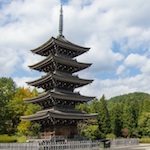It's an interesting piece, but overlooks the Brazilians and other factory workers who were paid to leave, not to mention the bond traders and other finance types who left after Lehman Bros. collapsed.
More here
| Hot Topics | |
|---|---|
The Washington Post on Japan's immigration problem
16 posts
• Page 1 of 1
- LTLurker
- Maezumo
- Posts: 22
- Joined: Tue Sep 29, 2009 6:46 pm
The first paragraph was interesting:
I also think it's interesting how nyukoku kanri gets translated as Immigration when immigration doesn't exist here.
Maybe it would be better (or not worsely) translated as Entry Control. Or maybe that would sound like some kind of chastity device.
TOYKO -- Much of what you need to know about Japan's long-standing attitude toward immigrants is summed up in the logo of the nation's official immigration agency: It depicts a plane departing, rather than arriving.
I also think it's interesting how nyukoku kanri gets translated as Immigration when immigration doesn't exist here.
Maybe it would be better (or not worsely) translated as Entry Control. Or maybe that would sound like some kind of chastity device.
His [Brendan Behan's] last words were to several nuns standing over his bed, "God bless you, may your sons all be bishops."
-

Behan - Maezumo
- Posts: 1824
- Joined: Tue Aug 22, 2006 4:15 pm
- Location: That Wonderful Place Known as Chiba
-

Yokohammer - Posts: 5090
- Joined: Tue Sep 30, 2008 6:41 pm
- Location: South of Sendai
Having been an immigrant in a so-called "Immigrant Country" (Australia) and a "Non-Immigrant Cuntry," (Japan), my personal experience as a white male has been pretty favorable here. Processing is certainly much smoother now than it was a long time ago, I've never struggled getting visas and the only qualification I needed was a degree. Of course, the situation is different for non-white, non-English speaking people. Oz is far more stringent on who it lets in for the long-term.
The big difference, of course, is acceptance once you're a long-termer (as has been discussed endlessly in so many different threads).
Still, I have some sympathy for the Japanese situation. They are brainwashed into believing they're unique (well, they do have four seasons) and mono-ethnic, so acceptance of gaijin here permanently and in large numbers is naturally a painful position for them. As long as major urban centers like Tokyo, Osaka, Nagoya and the like continue to thrive, who gives a damn if some piddling hamlet in the boondocks (OK, maybe regional cities, too) become ghost towns? It'd stop a lot of the pork-barreling corruption surrounding the construction industry and make the country more productive in the long-term to just lop off these places and use them as farmland.
The big difference, of course, is acceptance once you're a long-termer (as has been discussed endlessly in so many different threads).
Still, I have some sympathy for the Japanese situation. They are brainwashed into believing they're unique (well, they do have four seasons) and mono-ethnic, so acceptance of gaijin here permanently and in large numbers is naturally a painful position for them. As long as major urban centers like Tokyo, Osaka, Nagoya and the like continue to thrive, who gives a damn if some piddling hamlet in the boondocks (OK, maybe regional cities, too) become ghost towns? It'd stop a lot of the pork-barreling corruption surrounding the construction industry and make the country more productive in the long-term to just lop off these places and use them as farmland.
Je pète dans votre direction générale
 8O8O8O8O8O
8O8O8O8O8O
Tiocfaidh ar la
Tiocfaidh ar la
-

Screwed-down Hairdo - Maezumo
- Posts: 6722
- Joined: Wed May 20, 2009 7:03 pm
All this English news articles about how the future of Japan is so bleak and keeps giving advice about what the government should do is kind of like a guy telling a blind guy that he is about to walk off a cliff but the blind guy believes that he can't or shouldn't alter his direction so he just keeps on walking. I say let Japan fall of the cliff, maybe once things have gotten so bad they will finally start listening.
I am not really sure where I am going, I just hope that when I get there, I can sit down because I am sure my feet will be tired.
-

BO-SENSEI - Maezumo
- Posts: 553
- Joined: Wed Mar 04, 2009 11:14 am
- Location: Not where I want to be.
BO-SENSEI wrote:All this English news articles about how the future of Japan is so bleak and keeps giving advice about what the government should do is kind of like a guy telling a blind guy that he is about to walk off a cliff but the blind guy believes that he can't or shouldn't alter his direction so he just keeps on walking. I say let Japan fall of the cliff, maybe once things have gotten so bad they will finally start listening.
Sounds like a reasonable idea to me, too...
Je pète dans votre direction générale
 8O8O8O8O8O
8O8O8O8O8O
Tiocfaidh ar la
Tiocfaidh ar la
-

Screwed-down Hairdo - Maezumo
- Posts: 6722
- Joined: Wed May 20, 2009 7:03 pm
Screwed-down Hairdo wrote:Having been an immigrant in a so-called "Immigrant Country" (Australia) and a "Non-Immigrant Cuntry," (Japan), my personal experience as a white male has been pretty favorable here. Processing is certainly much smoother now than it was a long time ago, I've never struggled getting visas and the only qualification I needed was a degree. Of course, the situation is different for non-white, non-English speaking people. Oz is far more stringent on who it lets in for the long-term.
The big difference, of course, is acceptance once you're a long-termer (as has been discussed endlessly in so many different threads).
Still, I have some sympathy for the Japanese situation. They are brainwashed into believing they're unique (well, they do have four seasons) and mono-ethnic, so acceptance of gaijin here permanently and in large numbers is naturally a painful position for them. As long as major urban centers like Tokyo, Osaka, Nagoya and the like continue to thrive, who gives a damn if some piddling hamlet in the boondocks (OK, maybe regional cities, too) become ghost towns? It'd stop a lot of the pork-barreling corruption surrounding the construction industry and make the country more productive in the long-term to just lop off these places and use them as farmland.
This idea makes sense but the problem is that the j-gov doesn't change laws and policies until they get a black eye in the international media. Under the current system set up by the Americans back in the 40's establishing and running medium sized farms is not profitable. A farm has to be owned by a large corporation so that it can compete with the JA due to the logistic monopolies here. The JA has all the tools and relationships to get it's goods to market where people who don't work with the co-op must deliver directly to the stores in most cases. We are lucky to have relationships with local markets and the JA. Each year we give the JA the minimum amount just to keep getting the benefits and sell the rest to local markets who will pay 25%-40% more.
Another problem is the tax system, small farms are exempt or can get government payments if they don't have a good year. Medium and large farms have to pay tax on their income and can't get help from the government if a storm wipes out their crop.
-

wuchan - Posts: 2015
- Joined: Tue Jun 17, 2008 11:19 pm
- Location: tied to a chair in a closet at the local koban
wuchan wrote:This idea makes sense but the problem is that the j-gov doesn't change laws and policies until they get a black eye in the international media. Under the current system set up by the Americans back in the 40's establishing and running medium sized farms is not profitable. A farm has to be owned by a large corporation so that it can compete with the JA due to the logistic monopolies here. The JA has all the tools and relationships to get it's goods to market where people who don't work with the co-op must deliver directly to the stores in most cases. We are lucky to have relationships with local markets and the JA. Each year we give the JA the minimum amount just to keep getting the benefits and sell the rest to local markets who will pay 25%-40% more.
Another problem is the tax system, small farms are exempt or can get government payments if they don't have a good year. Medium and large farms have to pay tax on their income and can't get help from the government if a storm wipes out their crop.
Can't disagree on either point. JA is a scourge. As is government protection and subsidization of small farmers, which only perpetuates these problems.
Good luck trying to come up with a workable solution, though. I guess the system is eventually going to collapse and become unworkable eventually and that's when we'll see change.
But I doubt that I'll see anything like this in my time.
Je pète dans votre direction générale
 8O8O8O8O8O
8O8O8O8O8O
Tiocfaidh ar la
Tiocfaidh ar la
-

Screwed-down Hairdo - Maezumo
- Posts: 6722
- Joined: Wed May 20, 2009 7:03 pm
Screwed-down Hairdo wrote: As long as major urban centers like Tokyo, Osaka, Nagoya and the like continue to thrive, who gives a damn if some piddling hamlet in the boondocks (OK, maybe regional cities, too) become ghost towns? It'd stop a lot of the pork-barreling corruption surrounding the construction industry and make the country more productive in the long-term to just lop off these places and use them as farmland.
The future of Japan: Apartheid. 'Japanese Only' urban centers with the immigrant Chinese masses toiling in the fields and in the factories in the countryside under feudal overlords.
-

Ganma - Maezumo
- Posts: 741
- Joined: Wed Sep 09, 2009 6:48 pm
nottu wrote:Can you possibly conceive of a counter argument to the dribble you've been fed?
Can you?
I am not really sure where I am going, I just hope that when I get there, I can sit down because I am sure my feet will be tired.
-

BO-SENSEI - Maezumo
- Posts: 553
- Joined: Wed Mar 04, 2009 11:14 am
- Location: Not where I want to be.
nottu wrote:Can you possibly conceive of a counter argument to the dribble you've been fed?
A face-washer?
Je pète dans votre direction générale
 8O8O8O8O8O
8O8O8O8O8O
Tiocfaidh ar la
Tiocfaidh ar la
-

Screwed-down Hairdo - Maezumo
- Posts: 6722
- Joined: Wed May 20, 2009 7:03 pm
Fine, give me some time, I got nothing to do today. Double spaced? 12-point font? 1" margins? Chicago-style references?
I am not really sure where I am going, I just hope that when I get there, I can sit down because I am sure my feet will be tired.
-

BO-SENSEI - Maezumo
- Posts: 553
- Joined: Wed Mar 04, 2009 11:14 am
- Location: Not where I want to be.
16 posts
• Page 1 of 1
Who is online
Users browsing this forum: No registered users and 3 guests

